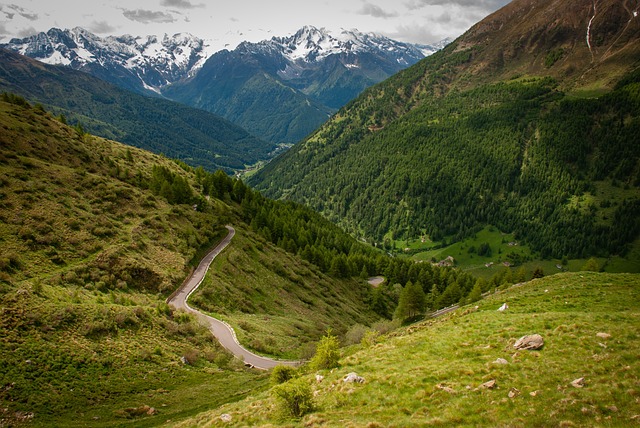How to Get Travel Insurance for a Ski Trip in the UK

Planning a ski trip is an exciting adventure, whether you’re hitting the slopes in the Scottish Highlands or jetting off to a world-renowned ski destination. However, skiing and snowboarding come with inherent risks, from injuries on the slopes to unexpected travel disruptions. That’s why having the right travel insurance is essential to ensure your trip is as safe and stress-free as possible. In this guide, we’ll walk you through everything you need to know about getting travel insurance for a ski trip, tailored specifically for travelers from the UK.
Why You Need Travel Insurance for a Ski Trip
Skiing and snowboarding are thrilling activities, but they also carry a higher risk of injury compared to other vacation pursuits. Additionally, ski trips often involve significant expenses, such as lift passes, equipment rentals, and accommodation. Without proper insurance, you could face hefty costs if something goes wrong. Here’s what travel insurance can cover:
- Medical Emergencies : Skiing injuries, such as broken bones or sprains, can happen even to experienced skiers. Medical treatment abroad can be expensive, especially in countries without reciprocal healthcare agreements with the UK.
- Trip Cancellations or Interruptions : If you need to cancel your trip due to illness, injury, or unforeseen circumstances, travel insurance can reimburse your non-refundable expenses.
- Lost or Damaged Equipment : Ski gear is expensive, and losing it or having it stolen can ruin your trip. Specialized ski insurance can cover the cost of replacing or repairing your equipment.
- Travel Disruptions : Delays, missed connections, or canceled flights can disrupt your plans. Travel insurance can provide compensation for additional expenses incurred.
- Personal Liability : If you accidentally injure someone else or damage property while skiing, liability coverage can protect you from legal claims.
Steps to Secure Travel Insurance for a Ski Trip
1. Assess Your Needs
Before purchasing travel insurance, consider the specific risks associated with your ski trip:
- Are you skiing domestically (e.g., in Scotland) or traveling abroad?
- Do you have pre-existing medical conditions that could affect your trip?
- How much does your ski equipment cost, and do you need coverage for it?
- Are you planning any additional activities, such as heli-skiing or snowmobiling?
Understanding your needs will help you choose the right policy.
2. Look for Ski-Specific Coverage
Not all travel insurance policies cover winter sports. Standard policies may exclude activities like skiing and snowboarding, so it’s crucial to look for a plan that explicitly includes “winter sports” or “ski coverage.” Key features to look for include:
- Medical Coverage for Ski Injuries : Ensure the policy covers injuries sustained while skiing or snowboarding.
- Equipment Coverage : Protects against loss, theft, or damage to your ski gear, including skis, boots, and helmets.
- Piste Closure Coverage : Reimburses you if the slopes are closed due to bad weather or other reasons beyond your control.
- Search and Rescue Costs : Covers the expense of mountain rescue services if you’re injured on the slopes.
- Activity Extensions : If you’re planning adventurous activities like off-piste skiing or heli-skiing, ensure they’re included in your policy.
3. Compare Providers
Several UK-based insurers offer specialized ski travel insurance. Some reputable options include:
- Post Office Travel Insurance : Offers flexible policies with optional winter sports coverage.
- Avanti Travel Insurance : Provides comprehensive ski coverage, including piste closure and equipment protection.
- InsureandGo : Known for affordable policies with add-ons for winter sports.
- World Nomads : A popular choice for adventurous travelers, offering extensive coverage for extreme sports.
Use comparison websites like MoneySuperMarket or Compare the Market to compare quotes and find the best deal.
4. Check Exclusions and Limits
Carefully read the fine print of any policy you’re considering. Common exclusions in ski travel insurance include:
- Injuries sustained while skiing outside designated areas (off-piste skiing).
- Accidents caused by intoxication or reckless behavior.
- Pre-existing medical conditions (unless declared and covered).
Pay attention to coverage limits as well. For example, some policies may only cover a certain amount for lost or damaged equipment, so ensure it aligns with the value of your gear.
5. Declare Pre-Existing Medical Conditions
If you have any pre-existing medical conditions, it’s essential to declare them when purchasing travel insurance. Failing to do so could invalidate your policy. Many insurers offer coverage for pre-existing conditions, but it may come at an additional cost.
6. Purchase Early
It’s advisable to buy travel insurance as soon as you book your trip. This ensures you’re covered for unforeseen events that occur before your departure, such as trip cancellations due to illness or natural disasters.
Additional Tips for Ski Travel Insurance
- Bundle with Annual Multi-Trip Insurance : If you take multiple ski trips each year, consider purchasing an annual multi-trip policy with winter sports coverage. It can be more cost-effective than buying single-trip insurance for each holiday.
- Check EHIC/GHIC Coverage : If you’re skiing in Europe, ensure you have a valid European Health Insurance Card (EHIC) or Global Health Insurance Card (GHIC). While these cards provide access to state healthcare, they don’t replace travel insurance.
- Photograph Your Gear : Before your trip, take photos of your ski equipment and keep receipts. This documentation can help streamline the claims process if your gear is lost, stolen, or damaged.
- Understand Local Laws : Familiarize yourself with the local laws and regulations at your destination. For example, some countries require skiers to carry liability insurance.
What Happens if You Don’t Have Ski Travel Insurance?
Traveling without adequate insurance can lead to significant financial and logistical challenges. For instance:
- A broken leg on the slopes could result in thousands of pounds in medical bills.
- Lost or stolen equipment could leave you scrambling to rent replacements at inflated prices.
- A canceled flight or delayed baggage could disrupt your entire itinerary.
With the right insurance, you can avoid these headaches and focus on enjoying your ski adventure.




